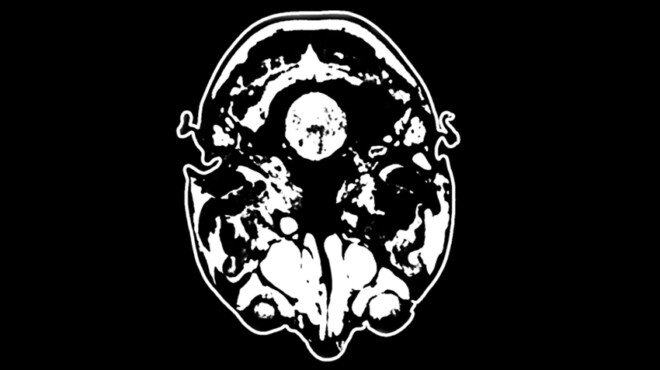Thinking and Language
15th January 2020 · 6:00pm - 8:00pm
In person | Virtual event

Take part with Adam Ramejkis in a series of six interactive, collaborative workshops using a think-share-explore approach. These workshops will encourage you to think, read, discuss and relate to different topics around the links between thinking and language.
You will gain the confidence and skills required to apply critical, reflective and creative thinking in your daily life, studies and work.
All workshops will run from 6.00 – 8.00pm on Wednesday evenings.
6-week course: 15th Jan – 19th Feb 2020
Programme of Workshops
15 Jan – thinking about thinking
Starting with extracts from texts about thinking (John Dewey: How we Think, John Stuart Mill: On Liberty, Immanuel Kant: What is Enlightenment?), we will engage in a discussion about definitions of ‘critical thinking’, leading on to a questioning of its value (or not) in our day-to-day lives, before moving on to using the library and online resources to flesh out our own lines of enquiry. The session will end with us sharing our research and exploring if and how what we think about thinking shapes how we think.
22 Jan – the language of power
In the society we live in, where we are not controlled by force, how do those in power stay in power? In this workshop, we will split into three groups and, using texts as starting points for further inquiry, consider 1) notions of power (Jan Bloemmart: Notes on Power), 2) advice on keeping those under your power on your side (Niccolo Machiavelli: The Prince), and 3) the idea that there is a link between the language we use and the thoughts we are able to think (George Orwell: The Principles of Newspeak). We will then reconvene to share our thoughts and findings, explore how the concepts connect with each other, and discuss real-life examples from our own experiences which relate to the central theme of Language and Power.
29 Jan – the power of language
Language is a tool for communicating ideas, thoughts and experiences – and the words we use have the potential to shape how things/events are understood. Starting with this idea of language as a means of persuasion, we will define the basic elements of communication and consider the use/value of rhetoric (Aristotle: Rhetoric), and explore the role identity plays in communication (Zimmerman’s three kinds of identity). The session will finish with us sharing examples of communication we have experienced which used rhetoric, and appeals to identity, to get the message across.
5 Feb – memory and the language of persuasion
This workshop is about memory, described by Cicero as a ‘treasure-house of all things’, with memories compared to ‘the books in a library on shelves with different labels’ (Kant). After researching and discussing models of memory, we will analyse examples of rhetorical devices used in advertising, in order to critique the idea that carefully-constructed messages can bypass the usual, conscious, process of memory storage and embed themselves directly into long-term memory (Vance Packard: The Hidden Persuaders). We will finish by sharing our experiences of ‘memorable’ communication, and consider the ethics of using rhetorical devices.
12 Feb – thinking through association
American psychologist Stanley Milgram’s Six Degrees of Separation illustrates the interconnectedness of people and society in the ‘small world’ we inhabit – claiming we are all connected through a chain of associations. In this workshop, after a brief introduction to semiotics (the study of signs and their meanings) we will explore trains of thought and consider how, in our minds, things link together, and share examples of how we associate things with other things, experiences or ideas. We will finish by discussing the value of harnessing this ‘thinking through association’.
19 Feb – on reflection
Rounding off the series, this session is all about reflecting on what has happened in the workshops, how we feel and have felt about this (and how we have felt/feel about our feelings), and if/how what we have thought, shared and explored will impact on our thinking from here on in. We will explore different models of reflection and discuss any ‘critical incidents’ (Brookfield) we encountered along the way. We will use Ketso® – a ‘toolkit for creative engagement’ – to share our thoughts, reflections and feelings with each other, allowing us to discuss common themes and explore things further.
Workshop Facilitator
Adam Ramejkis works as an Academic Support Tutor and as an Associate Lecturer in Creative Thinking and Communication at University of the Arts London, where he supports students with their understanding of academic communication and trains staff in effective communication and cultural awareness. He advocates a think-share-explore approach to collaboration, as this enables us to reflect on and develop our own, and each other’s, thinking.
Please contact Adam directly if you have any questions about this project:
We are committed to promoting inclusive practice at Conway Hall. Due to the constraints of our historic building, there is currently no step-free access to the Library. Please see our Access and Visitor Information for further accessibility information or contact us at Librarian@conwayhall.org.uk. We vary the location of our events between the Library and other ground-level rooms, and are working to ensure that everyone is able to attend all our events in the future.